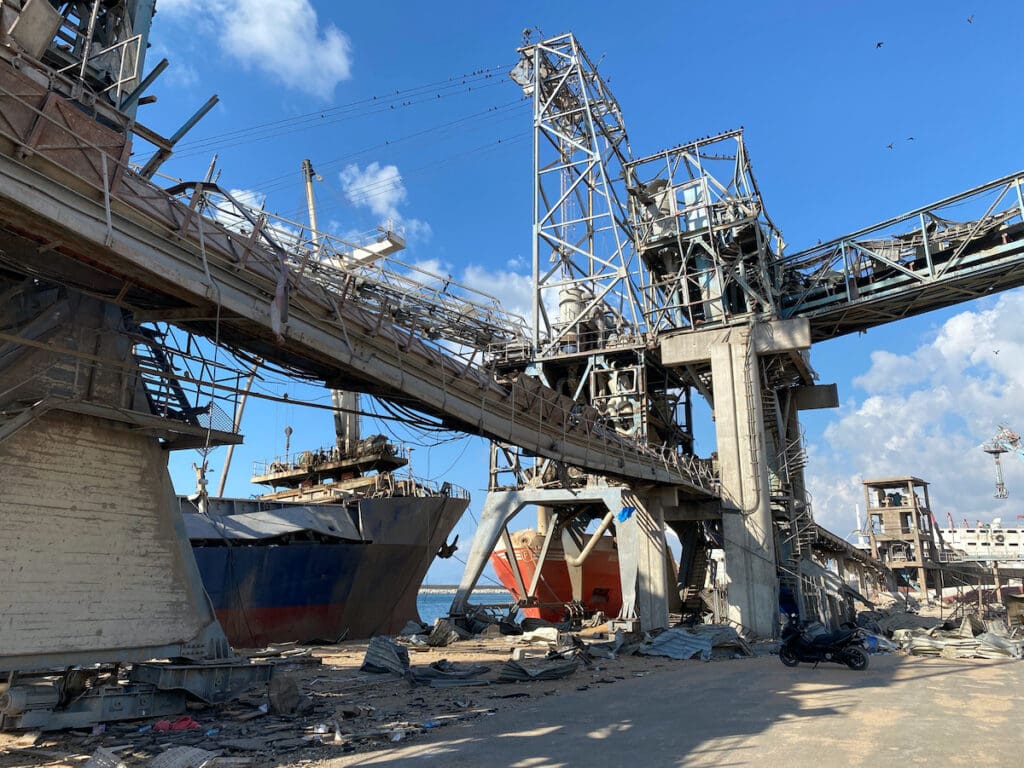WFP Provides Cash Assistance to 50,000 People Affected by the Devastating Beirut Blast

BEIRUT – The United Nations World Food Programme (WFP) in Lebanon is stepping up its response to the explosion that ripped through the capital in August by providing cash assistance for up to 50,000 people (10,000 families), to help them meet basic needs such as food and healthcare.
As of mid-September, vulnerable families started to receive a monthly transfer of 1,680,000 LBP (about $1,107) under an operation that is expected to last for six months. People most in need were identified based on assessments conducted by the U.N. World Food Programme and its partners in affected neighborhoods. The U.N. World Food Programme will continue to accept applications for assistance through a self-registration website launched earlier in September. We are carrying out this assistance in close collaboration with the Lebanese Red Cross and with operational support from the Lebanese non-governmental organization SHEILD.
“The blast came as Lebanon was dealing with two other severe shocks: the ongoing economic crisis and the impact of the COVID-19 lockdown measures. Families have been struggling to meet their basic needs even prior to the explosion,” said U.N. World Food Programme Representative and Country Director in Lebanon Abdallah Alwardat. “The U.N. World Food Programme has been on the ground since the days following the blast assisting those most in need. This assistance comes as a continuation of our response after bringing in wheat flour and providing food parcels and hot meals to vulnerable individuals and families.”
Prior to this operation, the U.N. World Food Programme distributed over 2,200 family food parcels reaching 7,600 people in the Karantina, Bourj Hammoud, Gemmayze, Geitawi, and Khandaa El Ghamee neighborhoods of Beirut. Local partners and NGOs also received U.N. World Food Programme food parcels to support kitchens providing more than 3,000 meals per day to affected families and volunteers cleaning up the neighborhoods.
In order to help stabilize the flour supply and the price of bread, the U.N. World Food Programme also brought into Lebanon 12,500 metric tons of wheat flour. Following an agreement with the Ministry of Economy and Trade, bakeries started to increase the weight of the bag of bread from 900g to 1,000g, allowing families to receive two extra loaves in the staple bag of pita bread for the same price for the next 60 days.
The U.N. World Food Programme encourages those impacted by the explosion and economic crisis to register for assistance using this website: https://reg.scope.wfp.org/lb/
# # #
The U.N. World Food Programme is the world’s largest humanitarian organization, saving lives in emergencies, building prosperity and supporting a sustainable future for people recovering from conflict, disasters and the impact of climate change.
Follow us on Twitter @WFPUSA @wfp_media and @WFPLebanon
For more information, contact:
Malak Jaafar, WFP/ Lebanon, Mob. +961 76 320 761
Abeer Etefa WFP/ Cairo, Mob. +20 106 6663 4352
Reem Nada, WFP/ Cairo, Mob. +20 106 6663 4522




